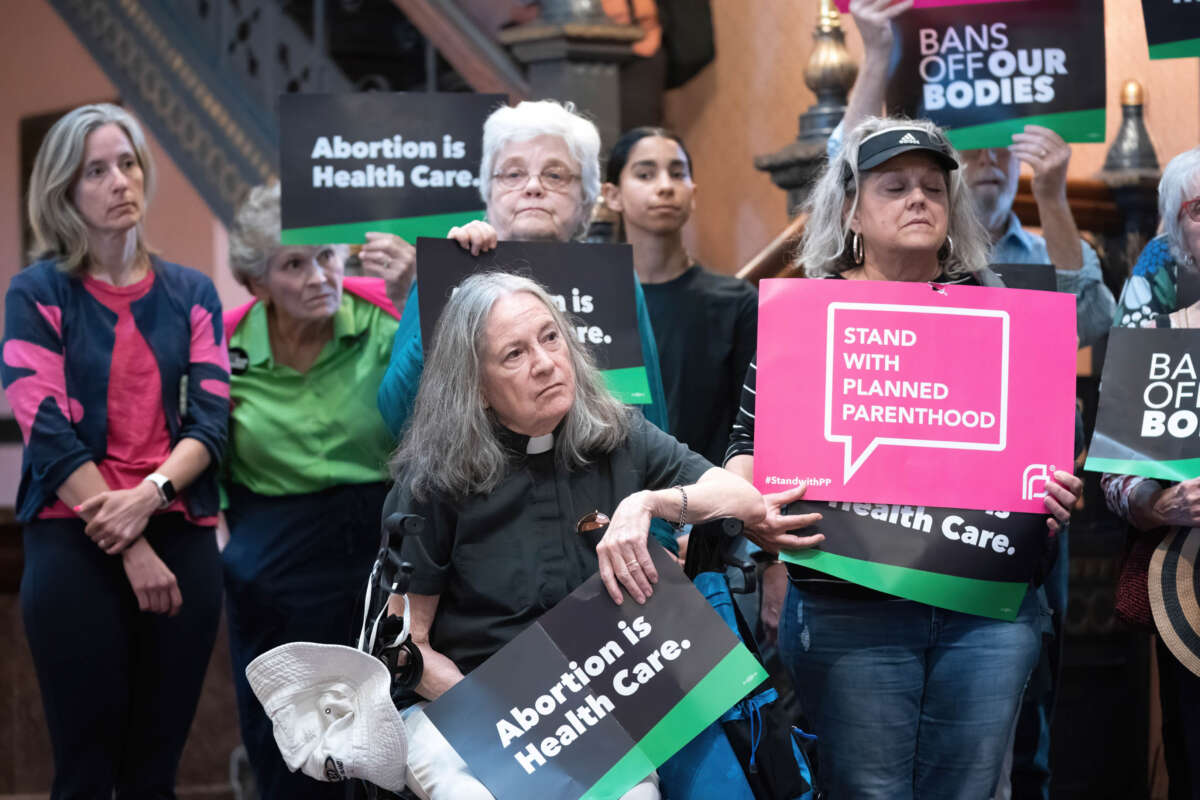On Wednesday, the South Carolina Supreme Court reversed a lower court’s injunction on a six-week abortion law, allowing the restrictive statute to go into effect after ruling less than a year ago that a similar ban on the procedure was unconstitutional.
The law, known as the “Fetal Heartbeat and Protection from Abortion Act,” is based on false notions that fetal heartbeat can be detected at six weeks of pregnancy; medical experts have said that this is a misnomer and an improper grounds for restricting abortion. The law was challenged by abortion rights groups almost immediately after its passage in May.
In January, a similar six-week ban — which had been passed as a “trigger law” that went into effect when the U.S. Supreme Court overturned federal abortion protections last year — was deemed illegal by the state’s highest court for failing to abide by privacy rights established in the state constitution. Between then and now, however, the author of that January decision, former Justice Kaye Hearn, retired, and was replaced by an anti-abortion justice. Another justice switched his vote between the two cases.
All of the justices who ruled in the new abortion case on Wednesday were men. The lone dissenter in the 4-1 decision, Chief Justice Donald Beatty, argued that the new law was too similar to the older one that had been deemed unconstitutional.
“Today’s result will surely weigh heavily upon the public and our state’s medical professionals,” Beatty wrote in his dissent, “in light of the threat of criminal penalties placed upon practitioners and the serious harm that could occur to women who could be denied reproductive healthcare during this uncertainty.”
A Winthrop University poll in May showed that a plurality of South Carolina residents disagree with the new law, with 43 percent saying they opposed a six-week ban and only 37 percent saying they were supportive of the measure. Another 20 percent were unsure or preferred not to answer.
The Carolina Abortion Fund, a nonprofit that seeks to help people in the state access abortion services, said it would continue its work in spite of the ruling.
“We are still funding and coordinating care for South Carolinians,” the group said in a statement posted on X, the platform formerly known as Twitter. “We are deeply grateful for our legal counsel helping us navigate the boundaries of our support network; the safety of our callers remains our number one priority.”
“We exist to serve the Carolinas — and we do so not as dispassionate third-party observers but as people who call this part of the world home,” the group added. “We remain committed to you, to your sibling, to your neighbor — to our neighbors, to ourselves.”
Matching Opportunity Extended: Please support Truthout today!
Our end-of-year fundraiser is over, but our donation matching opportunity has been extended! All donations to Truthout will be matched dollar for dollar for a limited time.
Your one-time gift today will be matched immediately. Your monthly donation will be matched for the whole first year, doubling your impact.
This matching gift comes at a critical time. As Trump attempts to silence dissenting voices and oppositional nonprofits, reader support is our best defense against the right-wing agenda.
Help Truthout confront Trump’s fascism in 2026, and have your donation matched now!
